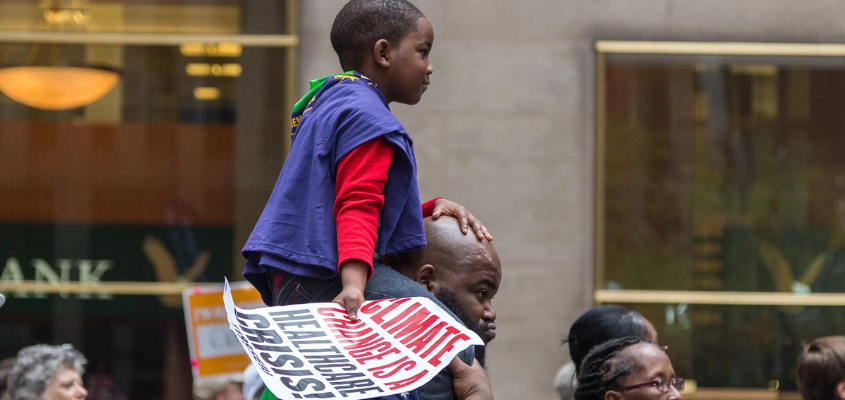by ANTHONY KAREFA ROGERS-WRIGHT

Last week, Professor Jerel Ezell (University of California, Berkeley) penned a piece for the New York Times suggesting that Joe Biden and the Democrats greatly underestimate how salient an issue climate change is for the Black voters who will certainly have a marked impact on the outcome of the upcoming elections in November. In their piece, Ezell posits, “Democratic strategists seem to see climate change as a key political issue only for white liberal elites and assume that other groups, like Black voters, are either unaware or apathetic about it.” Unfortunately, this sentiment is held not only by, majority white and affluent, Democratic Party strategists, but has also long been held by the environmental nonprofit apparatus as well as far too many liberal and conservative elements of the Black Misleadership Class who continue to transmit a feckless notion that environmentalism is a “white people’s thing.”
The data empirically suggests otherwise.
As Ezell points out, according to a recent poll conducted by CBS News, 88% of Black folk view climate change as “somewhat” or “very important” compared to 67% of white folk and 80% of Hispanics. Moreover, data collected by the Brookings Institute in September of 2023 revealed that for Black folk, climate change is of higher political concern than abortion/reproductive justice and the state of democracy – two issues the Democratic party believes it can utilize to defeat Trump and the GOP. That Black people are viewed by Democratic strategists as apathetic to, or unable to comprehend the perilousness of the climate crisis is nothing new. So the question becomes, why do Democrats hold this view despite myriad data sets that demonstrate otherwise?
The fact that these Democratic strategists seem to believe that white folk from the San Francisco Bay Area, Upper West Side of Manhattan, Westchester and Los Angeles County suburbs are somehow more rooted in the impacts of climate change than Black folk from the Gulf South, Cancer Alley, Asthma Alley, and myriad environmental justice communities nationwide forms the circumference of a special brand of ignorance and an all too familiar brand of white “supremacy” ideology. It would be like proclaiming that KC and the Sunshine Band are more rooted in the rudiments of funk than James Brown, Bootsy Collins, and George Clinton while suggesting Taylor Swift give voice lessons to Chaka Khan.
Five years ago I wrote a piece entitled, White Supremacy and Climate Change, A Sinister Symbiosis . Therein, I declared that the people on the frontlines of the climate crisis, Black, Brown, Indigenous, and the poor, understand better than anyone that confronting and dismantling white “supremacy” is requisite for achieving even a modicum of climate justice. Furthermore, frontline communities, and the organizations accountable to them, also know this confrontation is increasingly necessary for the Democratic Party and the environmental nonprofits that largely support it, as both exercise more racism and white “supremacy” ideology than they are ready and genuinely willing to admit and accept. This has consequences that are disproportionately impacting and killing far too many Black lives and communities.
One week ago we witnessed deadly storms in the Houston, Texas area that took at least four lives and knocked out power for an estimated 900,000 customers. The worst instances of the storm were felt in Black communities which are now forced to contend with a heatwave while many have no power – literally and politically – or the financial means to cool their homes. It should be noted that morbidity from extreme heat impacts Black folk between 3.8 and 4.6 times more than white people.
As the Democratic Party and environmental nonprofits continue to take the concerns of Black folk for granted, communication about the climate crisis and policies that purport to address it will continue to be inefficacious. Indeed, as the Brookings Institute reports, “Because public opinion shapes the design and structure of policy, the exclusion of how preferences vary along lines of racial identity—and its intersection with other factors such as age, income, education, geography, and political ideology—can bias policies toward the preferences of white Americans.” Due to this practice of “data invisibilization,” Brookings further concludes that climate policy is skewed away from the concerns of communities and populations most impacted by the climate crisis. In fact, most national surveys on the issue characterize the typical “climate concerned voter” (someone who believes global warming is occurring and represents a serious threat) is young, Democrat-leaning, liberal, highly educated, wealthy, and likely female – an archetype typically taken to largely mean white voters.
Black Agenda Report for more
